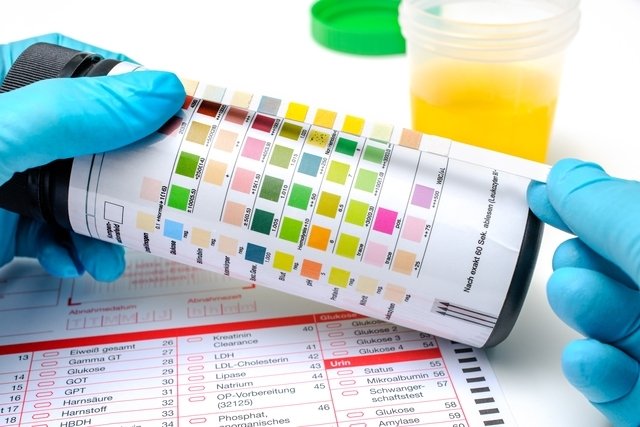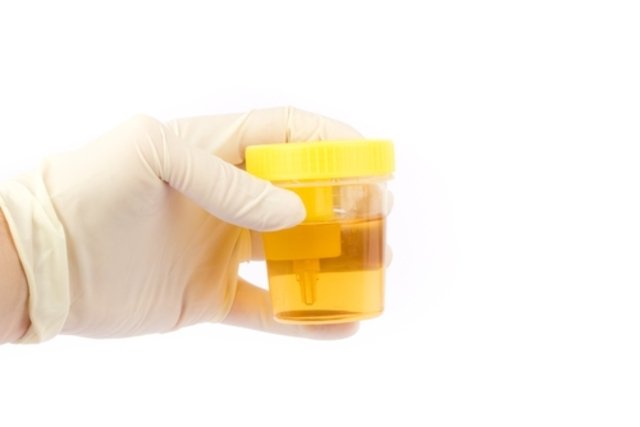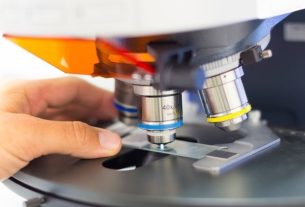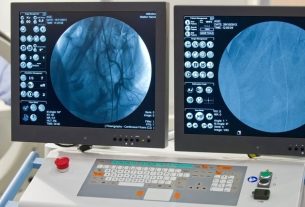A positive nitrite result indicates that bacteria capable of converting nitrate into nitrite were identified in the urine, indicating a urinary infection.
The nitrite test is part of the type 1 urine test, and it is important that the second stream of the first morning urine is collected so that the result is as accurate as possible.
Although the urine test is capable of identifying the presence of bacteria in the urine both through the presence of nitrite and by observation under a microscope, it is recommended to perform a more specific urine test, a urine culture, as it is capable of identifying the presence of bacteria in the urine. even if the nitrite is negative, in addition to informing the species and how it behaves against different antibiotics, indicating to the doctor the best form of treatment. Understand what urine culture is and what it is for.

When is indicated
The urine nitrite test is part of the type 1 urine test, the EAS, which is normally indicated by the general practitioner, gynecologist or urologist when a urinary infection is suspected, especially when the person presents symptoms such as pain and burning when urinating, frequent urge to urinate, fever and change in the color of urine, for example. Check out other symptoms of urinary tract infection.
How the exam is carried out
The urine nitrite test is carried out by analyzing the first urine in the morning. Collection must be done in a specific container provided by the laboratory and the genital region must be cleaned, discarding the first stream of urine and collecting the following. See how the urine test is collected.
Some bacteria have the ability to convert the nitrate normally present in urine into nitrite, which is indicated on the reaction strip that is used to analyze this and other aspects of urine. However, even if the result is negative nitrite, it does not mean that there are no bacteria in the urine. This is because some bacteria do not have this ability, and are only identified when urine is viewed under a microscope or through urine culture, which is a more specific test.
Normally, the diagnosis of urinary infection through EAS occurs when, in addition to positive nitrite, several leukocytes, red blood cells and bacteria are observed during observation under the microscope.
Which doctor to consult
The best doctor to evaluate a positive nitrite result is a urologist, who will identify the cause and initiate the most appropriate treatment.
Taking care of your health has never been easier!
Treatment for positive nitrite
Treatment for positive nitrite in the urine test must be guided by a urologist and is normally done with the use of antibiotics, such as Amoxicillin or Ciprofloxacin, for 3, 7, 10 or 14 days, depending on the medicine used, the dose and the severity of the infection.
However, when there are only changes in the urinalysis, without symptoms, treatment may not be necessary, as the body may be able to fight the infection. In these cases, the doctor will schedule a new urine test to assess the progress of the infection.
In the case of positive nitrite in pregnancy, the woman should consult her gynecologist or obstetrician to start treatment with the most suitable antibiotic for pregnancy, such as Cephalexin or Ampicillin, as there is a greater risk of developing a kidney infection. See how urinary tract infections are treated during pregnancy.

Sign up for our newsletter and stay up to date with exclusive news
that can transform your routine!
Warning: Undefined array key "title" in /home/storelat/public_html/wp-content/plugins/link-whisper-premium/templates/frontend/related-posts.php on line 12
Warning: Undefined array key "title_tag" in /home/storelat/public_html/wp-content/plugins/link-whisper-premium/templates/frontend/related-posts.php on line 13




